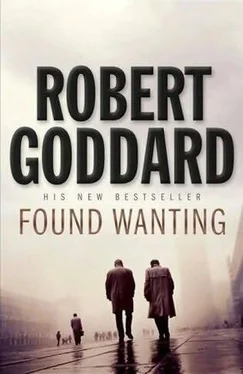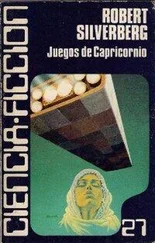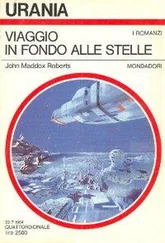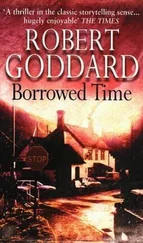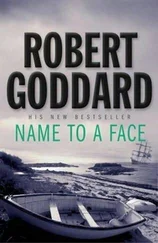Eusden had only the briefest glimpse of the industrial wasteland Lund had dumped him in before the pressure of Vladimir’s hand on the back of his head told him to clamber into the boot of the thrumbling Mercedes.
‘Carpet and loads of leg room,’ said Brad, meeting his backward gaze with a smirk. ‘Gennady grew up in Kiev with four brothers in less comfortable and capacious surroundings.’
‘When do I get out of here?’
‘When we need you. Don’t worry. We’ll know where to find you.’ He reached up to close the boot, then stopped. His phone was ringing. He pulled it out of his pocket and read out the number of the caller. ‘Means nothing to me. You, sport?’
‘Regina.’
‘You’d better take it.’ He handed Eusden the phone.
‘Regina?’
‘Hi, Richard.’ She sounded breathless. ‘I’ve got to make this quick. I’m on my way to the gate. I’m booked on a flight from Copenhagen to Helsinki that gets in at seven twenty. Finnair six six four.’
‘Six six four at seven twenty. Got it. I’ll see you then.’
‘Likewise. ’Bye.’
Eusden passed the phone meekly back to Brad. ‘Would it do any good to tell you I suffer from claustrophobia?’
‘Not a bit. But, hey, it’s not like we’re going to forget about you. We’ll be checking on you regularly.’ Brad frowned thoughtfully, as if reviewing his tactics for the pending encounter at Koskinen’s house. He drummed his fingers on the boot lid, then plucked the envelope containing the fingerprints out of his pocket and slid it inside the lapel of Eusden’s crumpled jacket. ‘Look after that for me, sport. Like your life depends on it.’ Then he slammed the lid shut. And Eusden was plunged into darkness.
The boot smelt nine parts of carpet fibre and one of diesel. There was no light of any kind. Eusden spent some minutes trying to find a manual switch for the internal lamp before giving up. Gennady drove like a chauffeur for a wealthy old widow: smoothly and slowly. The car accelerated and decelerated, turned and straightened. Beyond the steady hum of the engine, sound was muffled and distant: horns, air brakes, tram bells and pneumatic drills drifting in and fading away as the Mercedes threaded through the Helsinki traffic towards its destination.
Eusden could not stop himself wondering – and doubting – whether his plan to escape his captors’ clutches at the airport would work. Brad would surely anticipate such an attempt and seek to forestall it. He had to pin his hopes on Brad’s greed skewing his judgement and he did not know the man well enough to assess how likely that was.
The consoling fact remained, however, that he had talked them into sparing his life so far and stood a good chance of outwitting them if he held his nerve. He would be outwitting Mjollnir into the bargain, since Lund no doubt assumed he was already dead. What had Koskinen told Pernille? he wondered. How had they accounted for his sudden disappearance? Whatever lie they had concocted, he intended to ram it down their throats once he was free. Pernille must think he had deserted her. He would make it his business to ensure she did not go on thinking that. She would be at Koskinen’s house now, with Matalainen, waiting and worrying. There was nothing he could do to help her or to explain his absence. But he promised himself she would know the truth – and others would be held accountable for that truth – before he was finished.
He smiled at the irony that Brad had given the envelope containing the fingerprints to him for safekeeping. He tried to retreat into a fanciful recreation of events aboard the imperial yacht that August day in 1909 as a means of distracting himself from the grimness of his situation. But Clem in his Isle of Wight constable’s uniform and the Grand Duchesses in their white, lace-fringed dresses were figures from a dream. The sunshine he imagined had no warmth, the voices no strength, the smiles no permanence. He was where he was. And they were far away and long ago.
The car stopped, as it had several times. Then the engine stopped. This was different. They had arrived at Luumitie 27. The exchange was about to take place.
A minute or so passed. Then a door slammed. And then another. Brad and Vladimir had left the car. Something whirred and clicked close to the boot. The aerial, he guessed. Gennady had switched on the radio. He wanted music while he waited, though he evidently thought he should play it low. No sound reached Eusden. The silence of the suburban residential side street was total.
More minutes passed. Five. Ten. Fifteen. The preliminaries must be over by now. Matalainen would be comparing the letters with the faxed copies. Soon, he would express his satisfaction. Then the combination of the case Koskinen had delivered to Pernille would be phoned through. Brad would open it up, check the bearer bonds and express his satisfaction. And then-
The noise hit him in a shock wave of air. His dark, cramped, silent world was split open by sound and light. The car rose and crashed back down as if struck by an earthquake. Something large and heavy crunched into the lid of the boot, driving in a deep dent to within an inch of Eusden’s face. As it did so, the lid jolted open. He was dazzled and deafened simultaneously and could only cower from the violent, roaring force of an event he could not comprehend.
Then sight and hearing and understanding rushed in on him. Fragments of masonry were raining down, hitting other parked cars as they fell, bouncing from roofs, chipping windows, sinking into the snow piled in the gutters. And smoke was billowing across the street in dust-laden clouds. He pulled a handkerchief from his pocket to shield his nose and mouth as he scrambled out over the sill of the boot.
The house that had once stood on the other side of the street was a wreck of flame and smoke, of sundered walls and splintered glass. The roof had caved in and between the surviving gables was a chaos of rubble. Pernille’s BMW stood in the driveway piled with debris, its windows smashed, and a toppled chunk of gatepost, with the number 27 screwed to it, lay on the pavement. Smaller pieces of debris were still pattering down as Eusden stared at the scene in horror. The smoke began to clog his lungs. He retreated.
As he did so, the driver’s door of the Mercedes opened and Gennady fell out on to the snow-covered verge, blood streaming from a gash across his head. A windowful of shattered glass fell with him. He looked up at Eusden and moaned. His eyes rolled up under his lids. Then he went limp.
In the next instant one of the gables gave way and crashed down into the wreckage. Smoke and dust mushroomed into the air. Eusden was forced back still further. A middle-aged woman appeared in the front yard of a house behind him. She shouted something to him in Finnish.
‘Phone for an ambulance,’ he shouted back. ‘There are people in there.’
‘What happened?’
‘I don’t know. Some kind of explosion.’
She gaped past him, her mouth slack with shock. She started to cough.
‘Phone for help. Now.’
‘OK. Yes.’ She ran back into the house.
Eusden stood where he was, squinting through the spreading haze of smoke. Luumitie 27 looked as if it had been hit by a bomb. And that, he knew, was precisely what had happened: a bomb. No one inside could have survived such an explosion. It had demolished the entire building, shattering walls and floors, crushing flesh and bone. Brad, Vladimir, Matalainen and Pernille must all be dead.
Eusden suddenly realized how badly he wanted to believe Pernille could still be alive, despite all evidence to the contrary. In simple truth, there was no hope. But he could not accept that. He would not accept that. He started across the street.
Читать дальше
